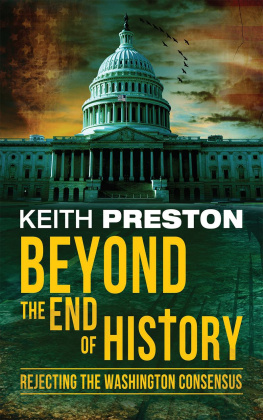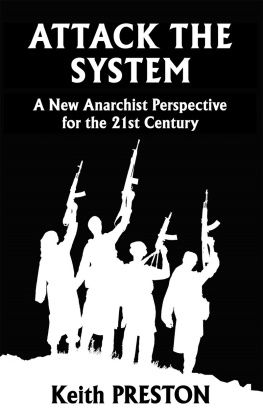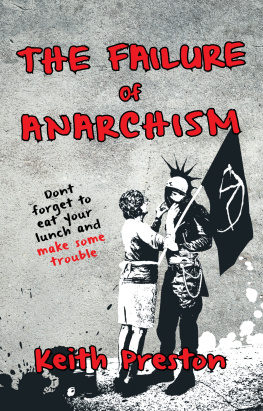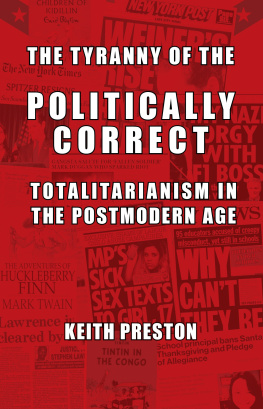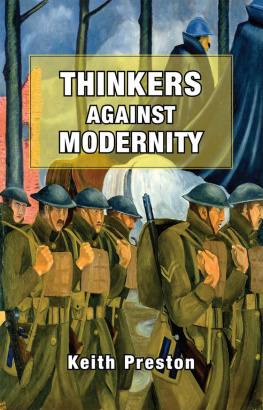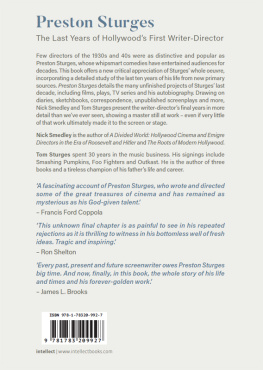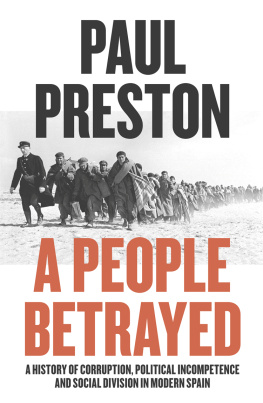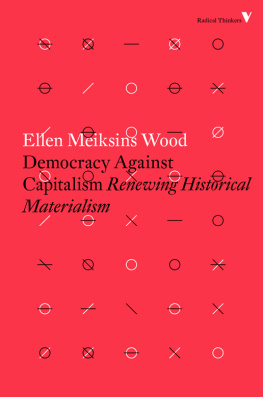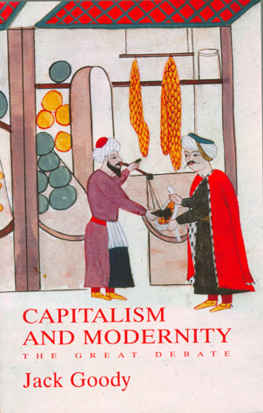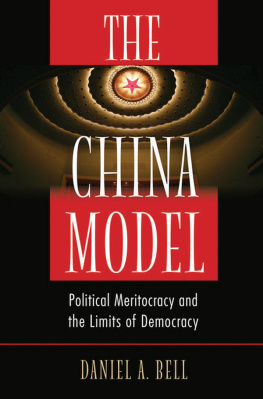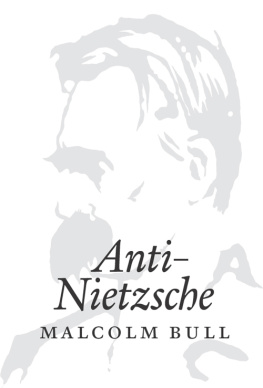All rights reserved. No part of this book may be reproduced in any form by any electronic or mechanical means including photocopying, recording, or information storage and retrieval without permission in writing from the publisher.
Introduction
In 1989, the neoconservative political scientist Francis Fukuyama published an article titled The End of History? in the journal of international relations The National Interest. Fukuyama expanded upon the ideas presented in this article in a book issued three years later titled The End of History and the Last Man. The context of Fukuyamas analysis involved the end of the Cold War, the collapse of the Soviet Union, and the supposed triumph of the American and Western European model of democratic capitalism as the supposed final end of human political and economic evolution. The presumption behind Fukuyamas thesis was that democratic capitalism was the most advanced form of political economy that humanity would ever achieve. Consequently, any further political evolution would simply be a matter of waiting for the rest of the world to catch up with the Western model.
It was also during 1989 that the English economist John Williamson coined the term The Washington Consensus to describe the neoliberal economic model that has emerged during the post-Cold War era of economic globalization. This alleged consensus represents a collection of policy prescriptions favored by the American foreign policy and economic elites based in Washington, D.C. and by Washington-dominated international institutions such as the World Bank, International Monetary Fund, and World Trade Organization. Over the past three decades, these policy prescriptions have in turn been adopted by Western elites as the expected model for economic development in the underdeveloped nations, and have served as the framework for the advancement of the global economy on an international scale.
However, during this time the overconfidence of Fukuyamas prediction has become apparent. Not only has considerable resistance to the economic model that Washington seeks to impose emerged, but the wider Western model of political economy has also been met with skepticism among large elements of the developing world. This is evidenced by the growth of fundamentalism throughout the Islamic world, the leftward turn of Latin America, the rise of Putinism in Russia, and the emergence of the Asian Way in East Asian nations such as China, South Korea, Singapore and Indonesia. Even in the Western nations, political parties rejecting the neoliberal consensus have emerged on both the Left and Right, and these parties are growing in popularity.
The essays presented in this collection represent a variety of themes pertaining to discontent with the currently dominant world order, and examines the ideas of a variety of thinkers, both past and present, that have offered critical analysis of the liberal democratic capitalist model of political economy, and its related cultural corollaries. The opening essay, American Imperialism vs. The Identity of the Worlds Peoples, explains the role of Americanization in imposing a global monoculture that is having the effect of eradicating traditional forms of cultural identity, and provides an overview of the resistance that is rising in opposition to this model. The next three essays revisit the work of two of the most prescient critics of the values of modernity from past times. The Nietzschean Prophecies, explores the remarkable accuracy with which Nietzsche foretold the future of Western civilization as it would unfold over the subsequent two centuries. Nietzsche the Visionary revisits the work of Nietzsche and offers speculation about what a model of civilization guided by Nietzschean values might involve. Ernst Junger: The Resolute Life of an Anarch discusses a leading literary figure associated with the conservative revolutionary movement that emerged during the Weimar Republic, and his later development of the concept of the Anarch.
These are followed by four essays examining the work of past and present anarchist thinkers, and that offer core criticisms of the dominant political, economic, and philosophical values of the present age. The first of these, Our Struggle is Neither Moral nor Intellectual, But Physical explores the implications of postmodern nihilism and cultural relativism, and affirms a Stirnerite approach to political theory. This followed by an overview of the thought of the classical anarchist Emma Goldman with a highlighting of those ideas within Goldmans outlook that would no doubt contradict certain presumptions of the Left in its contemporary form. The next two essays review the work of Hans Hermann Hoppe, an anarchist of the Right, and left-wing anarchist Kevin Carson. Hoppes critique of the political model of liberal democracy is presented alongside Carsons critique of the economic model of state-capitalism in a way that challenges the fundamental assumptions of prevailing political values.
Three subsequent essays analyze imperialism as it is presently manifested in the forms of the Anglo-American-Zionist-Wahhabist axis in the political realm, and global capitalism in the economic realm. These works likewise call for anarchist movements to reclaim the position they held a century ago as the worlds foremost and most feared revolutionary forces. Essentially, all of these essays constitute an effort to think modernity through to the other side in a way that challenges the progressive, liberal, democratic, and capitalist consensus. However, none of these works are conventionally right-wing in the sense of advocating a restoration of values of a reactionary, conservative, bourgeois, traditionalist, Christian, or racist nature. Instead, the essays contained in this collection are genuinely forward-looking and consider what the development of a genuine post-modernity might involve.
Keith Preston
Richmond, Virginia, United States August 20, 2016
American Imperialism vs. The Identity of the Worlds Peoples
Lecture given in Washington, D.C. on October 31, 2015
I was very happy when I was asked to speak to this gathering on the topic of the conflict between American imperialism and European identity, and indeed the identity of virtually all of the worlds peoples.
I have been an outspoken critic of American imperialism for several decades now, and as someone who has his political origins on the far Left, for much of that time I was mostly concerned about the relationship between the United States and the underdeveloped world. However, after spending some time in Europe off and on for the past fifteen years, Ive also come to realize that much of the criticism that can be voiced concerning the relationship between the United States and the underdeveloped world is also quite applicable to the relationship between the United States and Europe.
I will explain why that is in a moment, but first let me say that I consider American imperialism to be the bastard child of European colonialism, and it was a child that grew up to be a monster that ended up eating its father. I will explain what I mean by that in a moment as well. But I also think a bit of historical perspective is necessary in order to fully understand this question.
Two hundred years ago, most of the peoples around the world were still in the hunter and gatherer stage in terms of their level of social evolution. This is something that most contemporary people have no awareness of. Its certainly something that my students are surprised to hear when I tell them about it. But during the thousands of years that civilization has existed, within the broader context of all of humanity, civilization has still been the exception rather than the rule, at least until very, very recently. While many of the criticisms of European colonialism that are frequently voiced are indeed quite legitimate in my view, it is also true that a major part of the legacy of European colonialism is that it brought the virtues of Western civilization to many other parts of the world. Now, I am not someone who thinks that white, Western civilization is all that there is and that everything else is garbage. That would be a totally ahistorical perspective, in my view. But I would argue that the legacy of European colonialism is comparable to the legacy of Alexander the Great, who brought the virtues of classical Greek civilization to what in the fourth century B.C. (or B.C.E. if we want to be PC about it, I guess I dont need to worry about that here), but what in the fourth century B.C. was most of the known world.

